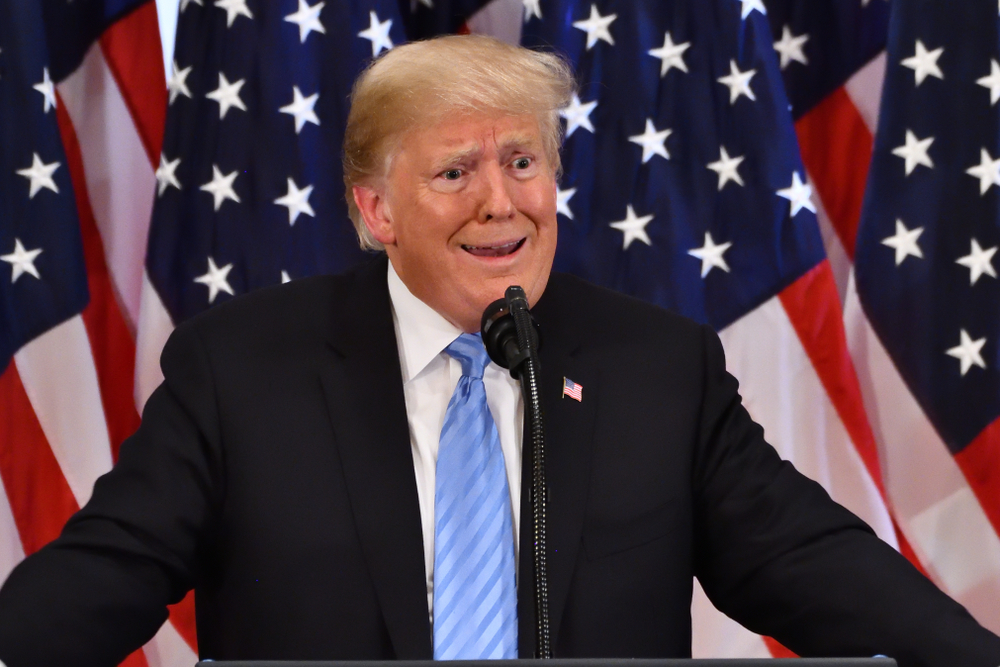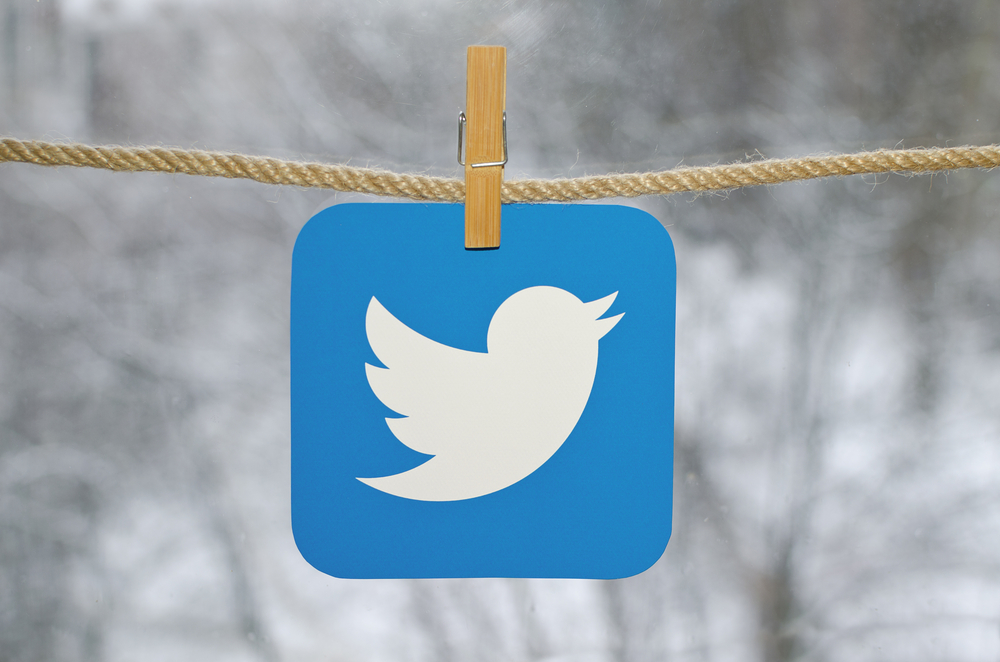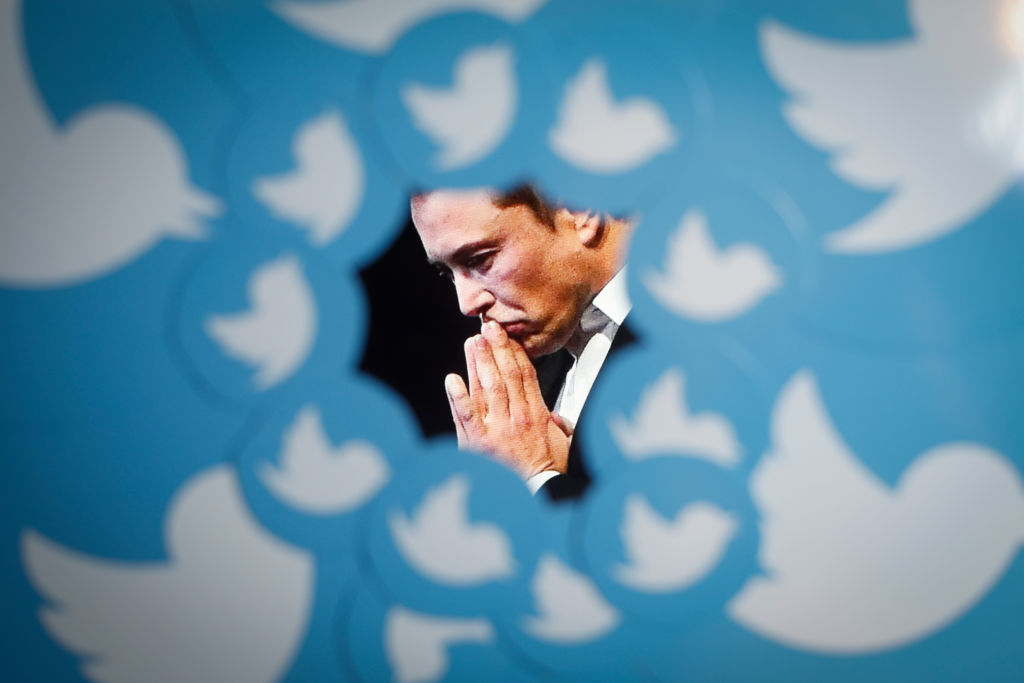Trump tweet hit with a manipulated media warning label
Twitter and Facebook take action against social media posts from President Donald Trump

While President Donald Trump’s social media posts are infamous for disseminating his latest thoughts, policy musings and catchy nicknames, some social platforms have labeled several of his latest posts as spreading misinformation and glorifying violence.
The saga of his controversial posts continued this week when, just yesterday, Twitter added a warning label to one of President Trump’s tweets after determining it violated its policies on manipulated media.
On the same day, Facebook removed 88 ads posted by the president, his campaign and Vice President Mike Pence. Facebook says the ads were “violating our policy against organized hate.”
On Thursday, President Trump tweeted a doctored version of a viral video showing two toddlers, one black and one white, hugging. In President Trump’s version of the video, ominous music plays while a fake CNN headline reads: “Terrified toddler runs from racist baby.” The headline later asserts, “Racist baby probably a Trump voter.”
The video then cuts to the original clip of the toddlers hugging and cuts to a black screen that reads, “America is not the problem. Fake news is.” At the time of Twitter’s labeling, the video had received 3.8 million views and more than 75,000 retweets.
Twitter spokeswoman Katie Rosborough told The Washington Post: “This tweet has been labeled per our synthetic and manipulated media policy to give people more context.”
President Trump is no stranger to posting manipulated videos on his social media accounts. In the past, the president shared doctored videos of Speaker Nancy Pelosi and Democratic presidential candidate Joe Biden.
Get the ITPro daily newsletter
Sign up today and you will receive a free copy of our Future Focus 2025 report - the leading guidance on AI, cybersecurity and other IT challenges as per 700+ senior executives
This isn’t the first time Twitter has flagged a tweet from the president, as it previously labeled two of Trump’s tweets as promoting false claims of mail-in voting fraud.
The social media giant also restricted a tweet from President Trump, explaining it broke Twitter’s rules related to the “glorification of violence.” The company later disabled a tweet from the president featuring a video tribute to George Floyd. Twitter removed the video citing copyright complaints.
Facebook also pushed back against President Trump’s social media posts this week by removing 88 ads posted by the accounts of the president, his campaign and Vice President Mike Pence. According to Facebook, the ads violated the company’s policy against organized hate. The identical ads featured an upside-down red triangle, a symbol used by the Nazi party to identify political dissidents housed in concentration camps during World War II.
A Facebook spokesperson wrote in an emailed statement to NBC News: "Our policy prohibits using a banned hate group's symbol to identify political prisoners without the context that condemns or discusses the symbol.”
A Twitter account for the Trump campaign claimed the image was “widely used by Antifa.” In an emailed statement, Tim Murtaugh, communications director for the Trump campaign, added, “Facebook still has an inverted red triangle emoji in use, which looks exactly the same, so it’s curious that they would target only this ad."
Jonathan Greenblatt, CEO of the Anti-Defamation League, encouraged the Trump campaign to take more caution when it comes to the symbols it uses.
"Whether aware of the history or meaning, for the Trump campaign to use a symbol – one which is practically identical to that used by the Nazi regime to classify political prisoners in concentration camps -- to attack his opponents is offensive and deeply troubling," Greenblatt remarked in an email.
-
 Bigger salaries, more burnout: Is the CISO role in crisis?
Bigger salaries, more burnout: Is the CISO role in crisis?In-depth CISOs are more stressed than ever before – but why is this and what can be done?
By Kate O'Flaherty Published
-
 Cheap cyber crime kits can be bought on the dark web for less than $25
Cheap cyber crime kits can be bought on the dark web for less than $25News Research from NordVPN shows phishing kits are now widely available on the dark web and via messaging apps like Telegram, and are often selling for less than $25.
By Emma Woollacott Published
-
 Who owns the data used to train AI?
Who owns the data used to train AI?Analysis Elon Musk says he owns it – but Twitter’s terms and conditions suggest otherwise
By James O'Malley Published
-
 Meta to pay $725 million in Cambridge Analytica lawsuit settlement
Meta to pay $725 million in Cambridge Analytica lawsuit settlementNews The settlement closes the long-running lawsuit into how Facebook's owner, Meta, handled the Cambridge Analytica scandal
By Ross Kelly Published
-
 Elon Musk confirms Twitter CEO resignation, allegations of investor influence raised
Elon Musk confirms Twitter CEO resignation, allegations of investor influence raisedNews Questions have surfaced over whether Musk hid the true reason why he was being ousted as Twitter CEO behind a poll in which the majority of users voted for his resignation
By Ross Kelly Published
-
 Businesses to receive unique Twitter verification badge in platform overhaul
Businesses to receive unique Twitter verification badge in platform overhaulNews There will be new verification systems for businesses, governments, and individuals - each receiving differently coloured checkmarks
By Connor Jones Published
-
 Ex-Twitter tech lead says platform's infrastructure can sustain engineering layoffs
Ex-Twitter tech lead says platform's infrastructure can sustain engineering layoffsNews Barring major changes the platform contains the automated systems to keep it afloat, but cuts could weaken failsafes further
By Rory Bathgate Published
-
 ‘Hardcore’ Musk decimates Twitter staff benefits, mandates weekly code reviews
‘Hardcore’ Musk decimates Twitter staff benefits, mandates weekly code reviewsNews The new plans from the CEO have been revealed through a series of leaked internal memos
By Connor Jones Published
-
 Twitter could charge $20 a month for 'blue tick' verification, following Musk takeover
Twitter could charge $20 a month for 'blue tick' verification, following Musk takeoverNews Developers have allegedly been given just seven days to implement the changes or face being fired
By Rory Bathgate Published
-
 Meta's earnings are 'cause for concern' and 2023 looks even bleaker
Meta's earnings are 'cause for concern' and 2023 looks even bleakerAnalysis Calls for investor faith in metaverse tech only emphasise the worries that its investment strategy won't pay off
By Rory Bathgate Published